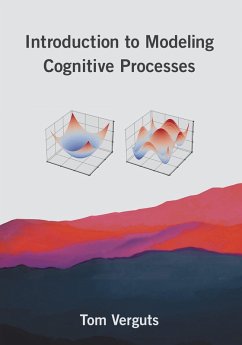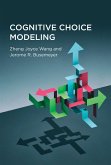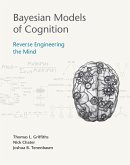An introduction to computational modeling for cognitive neuroscientists, covering both foundational work and recent developments. Cognitive neuroscientists need sophisticated conceptual tools to make sense of their field's proliferation of novel theories, methods, and data. Computational modeling is such a tool, enabling researchers to turn theories into precise formulations. This book offers a mathematically gentle and theoretically unified introduction to modeling cognitive processes. Theoretical exercises of varying degrees of difficulty throughout help readers develop their modeling skills. After a general introduction to cognitive modeling and optimization, the book covers models of decision making; supervised learning algorithms, including Hebbian learning, delta rule, and backpropagation; the statistical model analysis methods of model parameter estimation and model evaluation; the three recent cognitive modeling approaches of reinforcement learning, unsupervised learning, and Bayesian models; and models of social interaction. All mathematical concepts are introduced gradually, with no background in advanced topics required. Hints and solutions for exercises and a glossary follow the main text. All code in the book is Python, with the Spyder editor in the Anaconda environment. A GitHub repository with Python files enables readers to access the computer code used and start programming themselves. The book is suitable as an introduction to modeling cognitive processes for students across a range of disciplines and as a reference for researchers interested in a broad overview.
Dieser Download kann aus rechtlichen Gründen nur mit Rechnungsadresse in A, B, BG, CY, CZ, D, DK, EW, E, FIN, F, GR, HR, H, IRL, I, LT, L, LR, M, NL, PL, P, R, S, SLO, SK ausgeliefert werden.
Hinweis: Dieser Artikel kann nur an eine deutsche Lieferadresse ausgeliefert werden.









